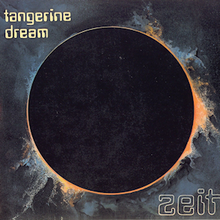
Tangerine Dream is a German electronic music band founded in 1967 by Edgar Froese. The group has seen many personnel changes over the years, with Froese the only constant member until his death in January 2015. The best-known lineup of the group was its mid-1970s trio of Froese, Christopher Franke, and Peter Baumann. In 1979, Johannes Schmoelling replaced Baumann until his own departure in 1985. This lineup was notable for composing many movie soundtracks. Since Froese's death in 2015, the group has been under the leadership of Thorsten Quaeschning. Quaeschning is Froese's chosen successor and is currently the longest-serving band member, having joined in 2005. Quaeschning is currently joined by violinist Hoshiko Yamane who joined in 2011 and Paul Frick who joined in 2020. Prior to this Quaeschning and Yamane performed with Ulrich Schnauss from 2014 to 2020. Schnauss only played two shows with Froese in November 2014 before Froese's passing.

Peter Baumann is a German musician. He formed the core line-up of the pioneering German electronic group Tangerine Dream with Edgar Froese and Christopher Franke in 1971. Baumann composed his first solo album in 1976, while still touring with the band, and embarked on a solo career in 1977. He founded the record label Private Music. Since the early 2000s, Baumann has devoted his time to studying and promoting initiatives in science and philosophy that shed light on the human condition.

Electronic Meditation is the debut album by German electronic music group Tangerine Dream. It was released in June 1970 by record label Ohr.
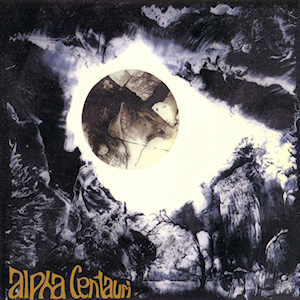
Alpha Centauri is the second studio album by German electronic music group Tangerine Dream. It was released in March 1971 by record label Ohr.
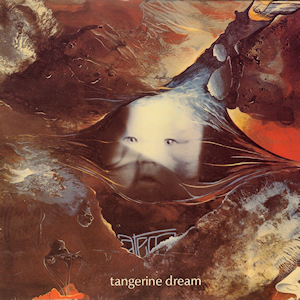
Atem is the fourth studio album by German electronic music group Tangerine Dream. It was released in March 1973 by record label Ohr.
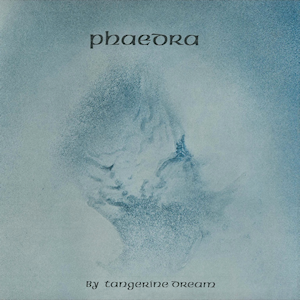
Phaedra is the fifth studio album by German electronic music group Tangerine Dream. It was recorded during November 1973 at The Manor in Shipton-on-Cherwell, England and released on 20 February 1974 through Virgin Records. This is the first Tangerine Dream album to feature their now classic sequencer-driven sound, which is considered to have greatly influenced the Berlin School genre.
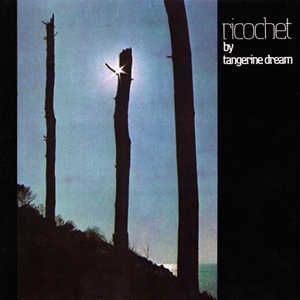
Ricochet is the seventh major release and first live album by the German electronic music group Tangerine Dream. It was released, on the Virgin label, in 1975. It consists of two side-long compositions mixed from studio recordings and the UK portion of their August–October 1975 European Tour. The sound of the album is similar to that of the group's other "Virgin Years" releases, relying heavily on synthesizers and sequencers to produce a dense, ambient soundscape, but is much more energetic than their previous works. Ricochet uses more percussion and electric guitar than its predecessors Phaedra and Rubycon, and borders on electronic rock. The main innovation on the album is the use of complex, multi-layered rhythms, foreshadowing the band's own direction in the 1980s and trance music and similar genres of electronic dance music.

Rubycon is the sixth studio album by German electronic music group Tangerine Dream. It was released in 1975. It is widely regarded as one of their best albums. Rubycon further develops the Berlin School sequencer-based sound they ushered in with the title track from Phaedra.

Stratosfear is the seventh studio album by the German group Tangerine Dream.

Cyclone is the eighth studio album by Tangerine Dream and the first in their canon to feature proper vocals and lyrics. The cover is a painting by band leader Edgar Froese.

Force Majeure is the ninth studio album by the German group Tangerine Dream. It was originally issued on transparent vinyl. Following Stratosfear, the album developed Tangerine Dream's further evolution toward the more melodic sound they would adopt in the 1980s, with a heavier presence of guitars, drums and distinct musical suites in the tradition of progressive rock, rather than the band's 1970s output of Berlin School.

Tangram is the thirteenth major release and tenth studio album by the electronic music group Tangerine Dream. It became their fifth biggest selling album, reaching #36 in the British Top 40, and spending 5 weeks on the chart.
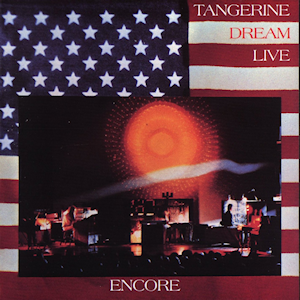
Encore: Tangerine Dream Live is the tenth major release and second live album by the German group Tangerine Dream. It is mostly assembled from various recordings from the band's very successful 1977 U.S. tour.

The electronic music group Tangerine Dream has released more than three hundred albums, singles, EPs and compilations since the group was formed in 1967.

Sorcerer (1977) is the ninth major release and first soundtrack album by the German band Tangerine Dream. It is the soundtrack for the film Sorcerer. It reached No.25 on the UK Albums Chart in a 7-week run, to become Tangerine Dream's third highest-charting album in the UK.
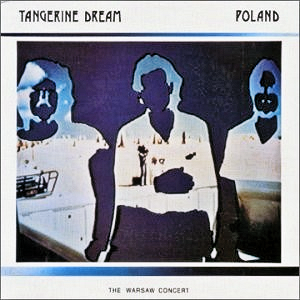
Poland - The Warsaw Concert is the twenty-fourth major release and fifth live album by Tangerine Dream. It spent one week on the UK Albums Chart at number 90.
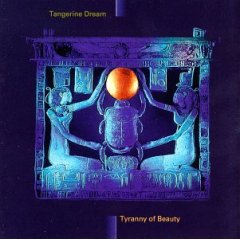
Tyranny of Beauty (1995) is the fifty-first release and twenty-third major studio album by Tangerine Dream. Guitarist Zlatko Perica does not appear on this album or its follow up Goblins' Club (1996). His absence is filled by guest musicians Gerald Gradwohl and Mark Hornby on both releases and during the groups London performance in November 1996.

Optical Race is the thirty-fifth major release and eighteenth studio album by Tangerine Dream. Optical Race is the inaugural album of the Melrose Years era, as it is the first appearance of the band on the Private Music label, founded by former Tangerine Dream member Peter Baumann. It was their first album without Christopher Franke since 1971's Alpha Centauri and the band's first to be programmed largely with a computer, an Atari ST using Steinberg/Jones software. The sleeve of the 12" release and the first release on CD and Compact Cassette features a die-cut outer sleeve with a multicolored inner sleeve.
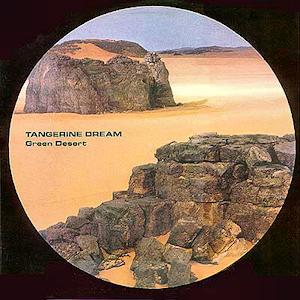
Green Desert is the twenty-seventh major release and the fifteenth studio album by electronic artists Tangerine Dream. The music was recorded in Berlin in 1973, during a period when Peter Baumann had temporarily left Germany to tour Nepal and India. Though unreleased at the time, it landed Tangerine Dream a record deal when Virgin heard the tapes. A remixed version of the music was released in 1986.
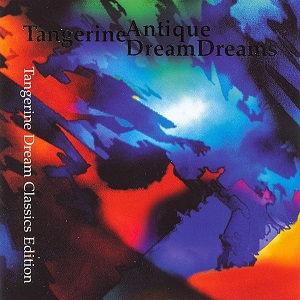
Antique Dreams is the seventieth release and first compilation album by Tangerine Dream. Compiled and remixed in 2000 and recorded between 1971 and 1988, it is the third and last of the Tangerine Dream Classics Edition series, following Sohoman and Soundmill Navigator. The album features live, studio and remix elements.
